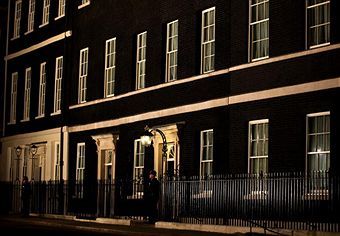 Pauline Neville-Jones was a first. She was one of the first women in the Foreign Office
to climb the department’s male-dominated ladder, serving as Lord Tugendhat’s chef de cabinet at the European Commission, obtaining the coveted post of Political Director and eventually
becoming JIC Chairman. She led the British delegation at the Dayton Peace Accords and she probably thought she would be the first British National Security Adviser.
Pauline Neville-Jones was a first. She was one of the first women in the Foreign Office
to climb the department’s male-dominated ladder, serving as Lord Tugendhat’s chef de cabinet at the European Commission, obtaining the coveted post of Political Director and eventually
becoming JIC Chairman. She led the British delegation at the Dayton Peace Accords and she probably thought she would be the first British National Security Adviser.
But it was not to be. Her usefulness to the Prime Minister seems to have been mainly in opposition, where she could add a voice of knowledge to a Shadow Cabinet with very little governmental experience. The Tory Green Paper on National Security was all the more serious for her drafting it. But it was not always easy. Her hard-nosed realpolitick instincts, delivered with steely conviction, occasionally jarred with the more neo-conservative sentiments in the Shadow Cabinet.
In government it became trickier, as Baroness Neville-Jones now had to work with and report to a number of senior Tories. Civil servants were also not always keen to have her back in a political role. Her clashes with Theresa May, and senior SpAds, are already the stuff of Whitehall legend. The Times is reporting that her relationship with No 10 hit new lows recently.
Her departure signals that the training wheels have come off the Prime Minister. But, sadly, it may also discourage what British politics needs to have more of: political appointments that allow professionals like Baroness Neville-Jones to bring their experience and knowledge not only to the legislature, through the House of Lords, but to the executive.






Comments